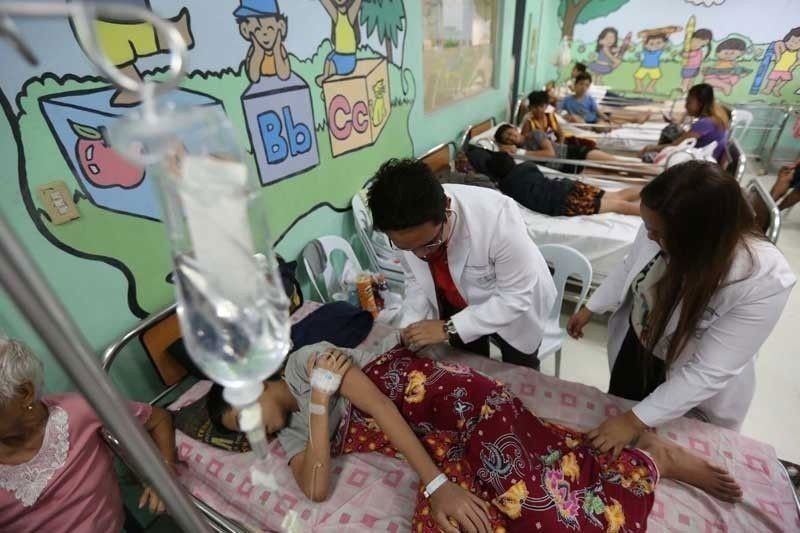Aging poor Pinoys lack access to health coverage – ADB

TBILISI – Aging poor Filipinos are suffering from unequal access to health coverage in the country amid limited resources and the still high out-of-pocket expense which should prompt the government to expand services and cater to the more vulnerable sector.
During the launch of the inaugural policy report of the Asian Development Bank (ADB) here, most developing economies were found to be unprepared in ensuring the well-being of their aging population.
This is amid various challenges faced by older people such as low pension coverage, health problems and limited access to essential services.
For the Philippines, the country stands out as among those with relatively low coverage of poor older people despite the Universal Healthcare (UHC) Law.
“Still, we see out-of-pocket expenses payments and people would still pay quite a lot of amount to private clinics or private health institutions,” ADB senior economist and the report’s principal author Aiko Kikkawa said in a briefing here.
“While others, even though they’re enrolled, they’re actually not claiming because there are some processes that they have to go through and that it’s not being as utilized as it aims to be,” she said.
Data showed that those in the poorest quintile constitute 47 percent of all uninsured people in the Philippines. Unfortunately, older people have more diverse health needs than the younger ones.
Kikkawa said this reflects the need to extend financial protection from high health expenditure while providing UHC.
For comparison, neighboring countries South Korea and Thailand have achieved full universal health coverage while Indonesia and Vietnam have better coverage than the Philippines.
Kikkawa also urged that older people in the Philippines be encouraged more to visit the hospitals. It was found that 60 percent of those aged 60 and above do not attend regular health check ups.
“We hear stories in the Philippines that older people are not getting health care much because they put others first,” Kikkawa said.
“So awareness is important, if they go to the clinic at the early onset or even the preventive stage, that’s good for the families,” she said.
Apart from making progress in achieving universal health coverage, ADB noted that it is also critical to extend essential services and interventions that optimize older people’s physical and functional capacity.
According to the report, the number of people aged 60 and older in developing Asia and the Pacific is set to nearly double by 2050 to 1.2 billion. This means that one in every four people will be older in the region.
This increases the need for pension and welfare programs as well as health care services.
Based on regional indicators of well-being in older persons, 57 percent have at least one diagnosed non-communicable disease. Majority of them also work in the informal sector.
Roughly 40 percent also had no pension, whether contributory or social and 43 percent of those who require help due to physical limitations do not receive care.
The ADB said economies have an opportunity to reap a “silver dividend” in the form of additional productivity from older people, which could boost gross domestic product in the region by 0.9 percent on average.
ADB chief economist Albert Park emphasized that governments need to prepare now if they’re going to be able to help hundreds of millions of people in the region age well.
Park said policies should support lifetime investment in health, education, skills and financial preparedness for retirement.
ADB has recommended policy measures to support healthy and economically secure aging including government-assisted health insurance and pension plans, improved health infrastructure and free annual check-ups and lifestyle evaluations.
- Latest
- Trending


























